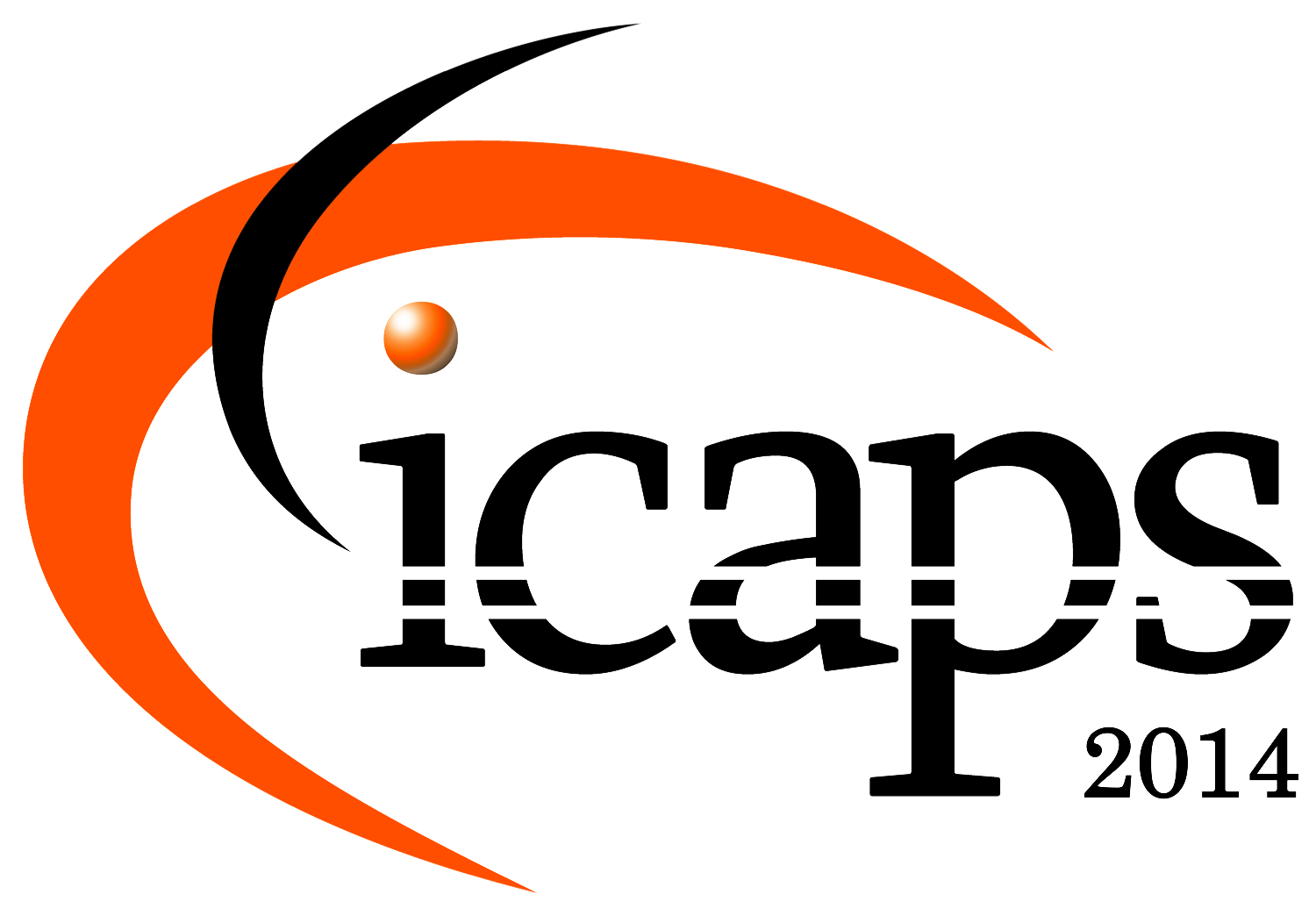Invited Talks
At ICAPS'2014, there will be three invited talks by the following leading researchers and practitioners of planning and scheduling technology:
- Malik Ghallab, Directeur de recherche at LAAS-CNRS, France.
- Michael Littman, Professor of Computer Science, Brown University, USA.
- Peter Wurman, Chief Technology Officer, Kiva Systems, USA.
Malik Ghallab
Coupling Problems in Planning & Acting
Thursday, June 26, 2014
Abstract: The conjunction of Planning & Acting has been around as a research issue since the early beginning of AI. Despite tremendous progress in each of the two subfields separately, the coupling problems in Planning & Acting remains open and unyielding to a firm grasp.
Can we do planning without acting? In cases where we cannot, when do we have coupling problems relevant to AI? What are these problems in -
- the representation, modeling, observing and tracking of the world?
- the types of models and organizations of actions?
- the deliberation functions needed and possible techniques for addressing them?
[1] M. Ghallab, D. Nau, and P. Traverso, “The actorʼs view of automated planning and acting: A position paper,” Artificial Intelligence, vol. 208, pp. 1–17, Mar. 2014.
[2] F. Ingrand and M. Ghallab, “Deliberation for Autonomous Robots: A Survey,” LAAS-CNRS report, May 2014.
 Bio:
Malik Ghallab is a senior research scientist at LAAS-CNRS, University of Toulouse. His research activity is mainly focused on planning, acting and learning in robotics and AI. He contributed to topics such as object recognition and pattern matching, scene interpretation, heuristics search, unification algorithms, knowledge compiling, temporal reasoning, planning, monitoring, and learning of robots skills and models of behaviors.
Bio:
Malik Ghallab is a senior research scientist at LAAS-CNRS, University of Toulouse. His research activity is mainly focused on planning, acting and learning in robotics and AI. He contributed to topics such as object recognition and pattern matching, scene interpretation, heuristics search, unification algorithms, knowledge compiling, temporal reasoning, planning, monitoring, and learning of robots skills and models of behaviors.
NOTE: This invited talk by Malik Ghallab is sponsored by ECCAI.
Michael Littman
Planning In The Context Of Model-based Reinforcement Learning
Wednesday, June 25, 2014
Abstract: Reinforcement learning (RL) is the problem of deriving goal-directed behavior from interaction with an environment. Model-based approaches to RL separate the task into two pieces---use ideas from machine learning to infer the dynamics of the environment in the form of a transition model, then use ideas from automated planning to decide what to do in this model. While, in principle, generic learning and planning approaches can be brought to bear, both subproblems are impacted by the fact that they are being applied in tandem. I will describe how my group has modified learning and planning approaches to work together in model-based RL with a focus on planning techniques that we have found particularly well suited in this setting.
 Bio:
Michael L. Littman's research in machine learning examines algorithms for decision making under uncertainty. He has earned multiple awards for teaching and his research has been recognized with three best-paper awards on the topics of meta-learning for computer crossword solving, complexity analysis of planning under uncertainty, and algorithms for efficient reinforcement learning. Littman has served on the editorial boards for the Journal of Machine Learning Research and the Journal of Artificial Intelligence Research. He was general chair of International Conference on Machine Learning 2013 and program chair of the Association for the Advancement of Artificial Intelligence Conference 2013.
Bio:
Michael L. Littman's research in machine learning examines algorithms for decision making under uncertainty. He has earned multiple awards for teaching and his research has been recognized with three best-paper awards on the topics of meta-learning for computer crossword solving, complexity analysis of planning under uncertainty, and algorithms for efficient reinforcement learning. Littman has served on the editorial boards for the Journal of Machine Learning Research and the Journal of Artificial Intelligence Research. He was general chair of International Conference on Machine Learning 2013 and program chair of the Association for the Advancement of Artificial Intelligence Conference 2013.
Peter Wurman
How to Coordinate a Thousand Robots
Tuesday, June 24, 2014
Abstract: Kiva Systems, an Amazon subsidiary, fills warehouses with thousands of robots to move inventory shelves to human pickers. The Kiva solution eliminates walking by the operators, making them 2-4x more efficient. Planning and scheduling are at the heart of Kiva's software architecture. I will discuss some of the specific scheduling challenges inherent in such a massively parallel coordinated robotic system, including path planning, job planning, delivery scheduling, and load balancing.
 Bio:
Pete Wurman is CTO of Kiva Systems, the Boston-based company that pioneered the use of mobile robotics in warehouses and distribution facilities. Pete joined Kiva in 2004 as a technical co-founder with Raff D’Andrea to help founder Mick Mountz bring his vision to life. In May of 2012, Kiva was acquired by Amazon.com. Prior to joining Kiva, Pete was an Associate Professor of Computer Science at North Carolina State University in Raleigh, NC. Pete’s teaching focus was e-commerce systems, and his research focused on electronic auctions (especially combinatorial auctions), multi-agent systems, and resource allocation. Pete earned his Ph.D. in Computer Science from the University of Michigan in 1999, and his B.S. in Mechanical Engineering from M.I.T. in 1987.
Bio:
Pete Wurman is CTO of Kiva Systems, the Boston-based company that pioneered the use of mobile robotics in warehouses and distribution facilities. Pete joined Kiva in 2004 as a technical co-founder with Raff D’Andrea to help founder Mick Mountz bring his vision to life. In May of 2012, Kiva was acquired by Amazon.com. Prior to joining Kiva, Pete was an Associate Professor of Computer Science at North Carolina State University in Raleigh, NC. Pete’s teaching focus was e-commerce systems, and his research focused on electronic auctions (especially combinatorial auctions), multi-agent systems, and resource allocation. Pete earned his Ph.D. in Computer Science from the University of Michigan in 1999, and his B.S. in Mechanical Engineering from M.I.T. in 1987.

